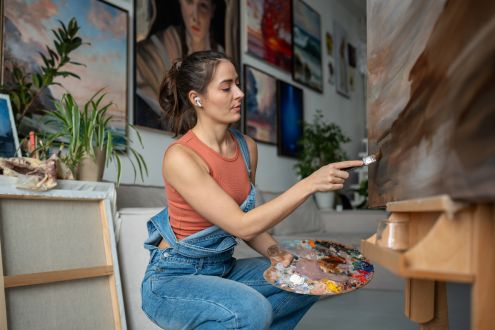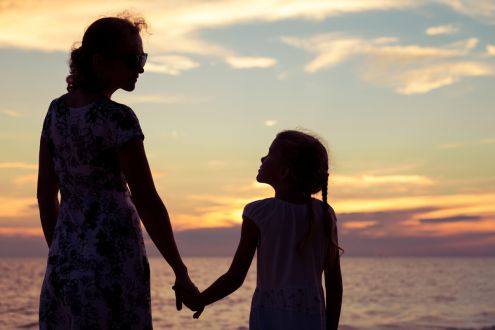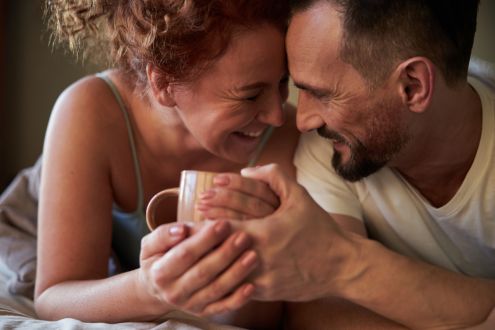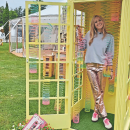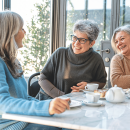Katie Piper on motherhood and her eye-opening new documentary
TV Presenter, writer, activist and model Katie Piper discusses putting aside her preconceptions of women in prison
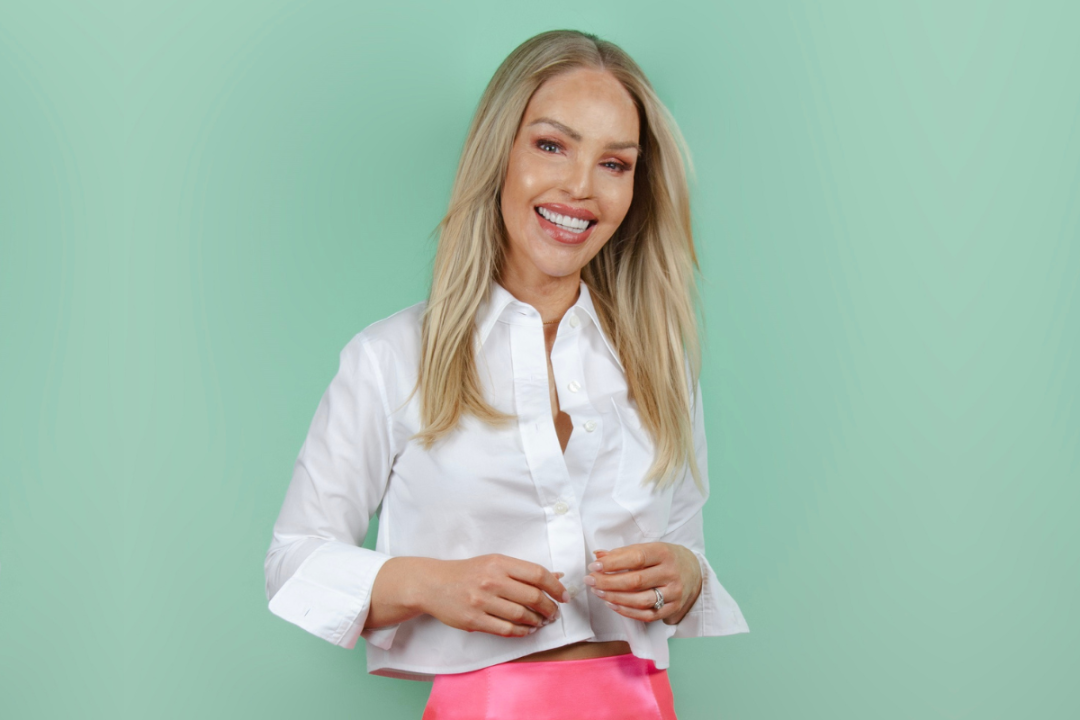
‘It’s a story of survival and sisterhood’: Spending time in a female prison has helped presenter and activist Katie Piper put aside her preconceptions, and acknowledge the trauma that leads women to commit crime.
Katie Piper is counting her lucky stars today, and when someone who has suffered as she has tells you they’re feeling fortunate, you can’t help but listen. The TV presenter, writer, activist and model has spent the past few months jetting back and forth to America, spending weeks at a time in female prisons, to explore how women parent behind bars.
And it is an experience that has made her very grateful for her own upbringing. ‘We weren’t wealthy – we didn’t have a lot of money – but we had our parents’ time, and we had consistency and stability. I now realise we were really privileged. It was a really rich childhood,’ she says.
It’s the polar opposite of what she has been witnessing, meeting women incarcerated in the US who are desperately trying to raise their children within a prison environment. But it wasn’t an experience she had planned.
Read Katie Piper on overcoming obstacles to achieving our goals
‘It isn’t necessarily a place I would have naturally been drawn to; it wasn’t something I put myself up for. But I was contacted by a group at a women’s prison in the UK. They were looking at women who had inspired them, and they’d done this project on me. They’d even named part of the prison after me!
‘They asked if I would come in and meet the women, and I felt like I couldn’t really say no, they’d put so much time in. It wasn’t something that I would have volunteered myself for without prompting, but I hold my hands up now and say that my prejudgment was completely wrong: it wasn’t as black and white as I thought.’
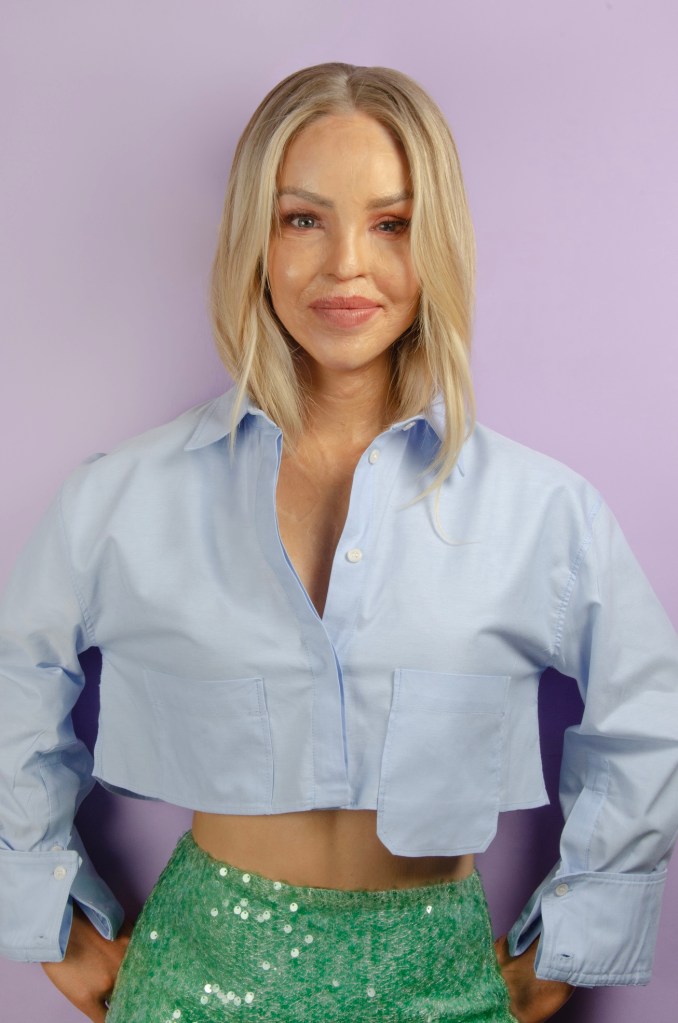
Piper says that working with the women, both in the UK and later in America, ‘opened her eyes’ to the realities they have faced in their lives.
‘Over 80 per cent of the population are locked up for drug-related crimes. And most drug-related crimes are either because men have used them as mules, or because the women themselves were addicts. And, frequently, that addiction was brought about by childhood trauma, or trauma in their adult years.
‘Some people will say, “Those women made a choice, why are you giving them airtime?” But you have to remember, male and female crime is very different. A very small percentage of the female prison population are locked up for violent crimes. You’re not going to go into jail and meet multiple Rose Wests and Myra Hindleys; the reason those women became so prolific is precisely because it’s so rare in a female prisoner.
‘Some of the women I met were serving life sentences because they had murdered people – but frequently the people they had murdered had been abusing them for 20 or 30 years, and they had snapped and acted in self defence.
‘For a lot of these women, life has been difficult, life has been unfair, and as a result, they have unravelled, and their mental health has suffered. That’s something I’ve experienced too, that unravelling, but the difference is that I’ve been really lucky to have the support of friends and family – these women haven’t had that.
‘For me, it was a harsh reminder that anyone can end up in prison – and that goes for you and I.’
‘We should all be more compassionate’: Katie Piper explains why kindness keeps her upbeat
Piper’s own ‘unravelling’ came as a result of her well-documented attack in 2008, when an ex-boyfriend and his accomplice targeted her with acid, causing damage to her face and blindness in one eye, the consequences of which she is still suffering from, 15 years on.
‘It’s hard to get eyedrops into prison – it’s contraband – so that was another hurdle,’ she laughs. ‘But the production company and the TV channel I worked with were really supportive about my treatment.
‘Years ago, my needs might have meant that I would lose my job, or not get picked for a job in the first place. So it’s great that employers are now starting to accommodate and understand hese needs. As a society, we’ve become much better with checking in with people and recognising more invisible scars and mental health.
‘But for anyone with a visible difference of disability and chronic pain, who’s on lifelong medication, it’s hard – you have to adapt. For burns survivors, it’s not a case that you get burnt, you get fixed, and it’s all over. It’s a never-ending injury. That’s why my charity exists: for the rehabilitation of survivors, because it’s costly.
‘It’s difficult to maintain a job when you have to have so much treatment all the time. If anything positive has come out of what I had to go through, it’s been bringing awareness to the fact that charities are very much needed to support survivors in the acute stages, but also for the rest of their lives.’
The lifelong impact of Piper’s own attack, and recognising that many of the women she met in prison were themselves victims of terrible violence and abuse, gave her huge empathy for them.
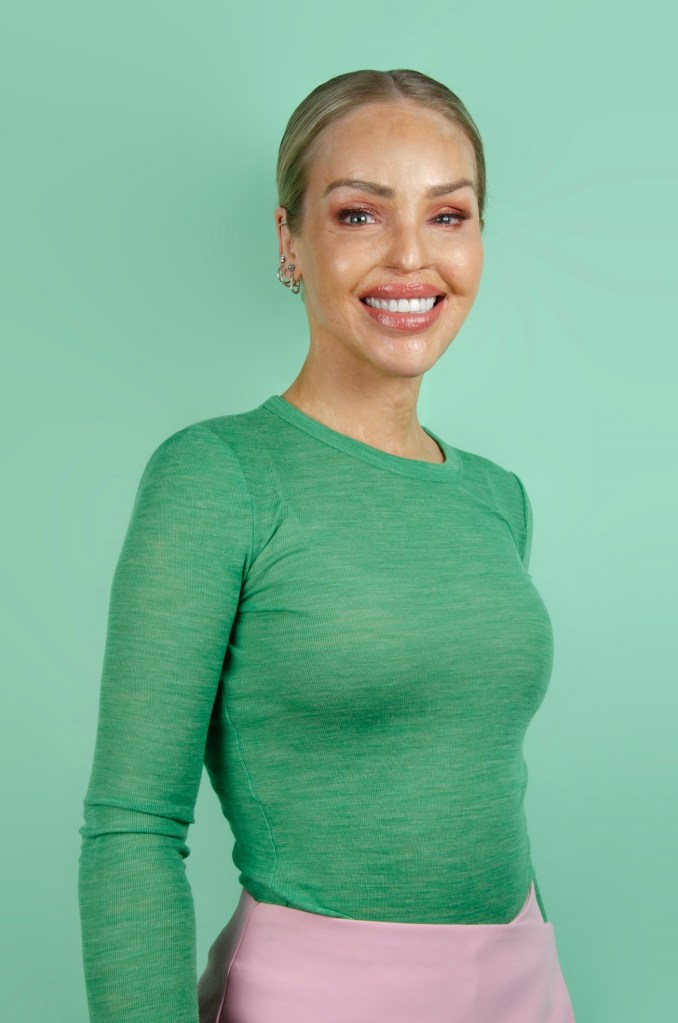
‘They would tell me that they didn’t know how to do their hair or make-up, they didn’t know how to dress, and they didn’t understand femininity. They had never experienced just being a young teenager, or they were sexually abused by their mother’s drug dealer from the age of three, and became a woman then.
‘Many of the women I met had never had that carefree, frivolous time. They had never dated, or had healthy relationships. They had pimps that were their boyfriends. And, then, they became pregnant by 14. They had skipped a whole section of life.
‘Being a teenager is tough but, usually, it’s a time that’s also full of fun. It’s where we find out who we really are, and when we build our characteristics. But there’s just this big, black hole for a lot of people that are incarcerated, where they just didn’t get to enjoy that transition.’
And, sadly, it’s a pattern Piper can see being repeated time and again.
‘The biggest victims are the children of these women. Statistics show that if you’re disconnected from your mother in the first few years of your life, you are more likely to end up in prison yourself. And then you just repeat this generational cycle.
‘And that’s what I saw firsthand; I met women who said, “Oh, my mom’s in the other wing, and my grandma’s in the detox wing. And my kid’s in the county jail, due to be sentenced to prison next month.” And you just think, “This isn’t working. This isn’t the solution.”’
But she also takes pains to point out that it’s not all doom and gloom. ‘When people get locked up, it’s not like a scene in a movie where everyone there is a bad person, and the prisoners stay in a dank cell with bread and water.
Katie Piper on how to see the good in times of trouble
‘These women were taking part in courses, therapy, education, practical development, and they were trying to better themselves. And I think when you see that, it’s quite inspiring, actually – somebody who has come from so little, trying to reinvent themselves. That’s the kind of energy I’m attracted to.
‘There are lots of reasons for people to give up on life. To just say, it’s not fair, so I’m not going to participate in society. So when I see people trying like that, I really do admire them. And I develop a soft spot for them.
‘They’re so resourceful, so resilient. There are some lighter moments in the programme, like where they showed me how they cook. There’s this woman literally chopping up chicken with her nails! And they showed me how they thread their moustaches and chin hair with a bit of cotton from their trousers. It’s actually a story of survival and how women come together. They make this artificial family, taking on different roles, and there’s a real sisterhood.’
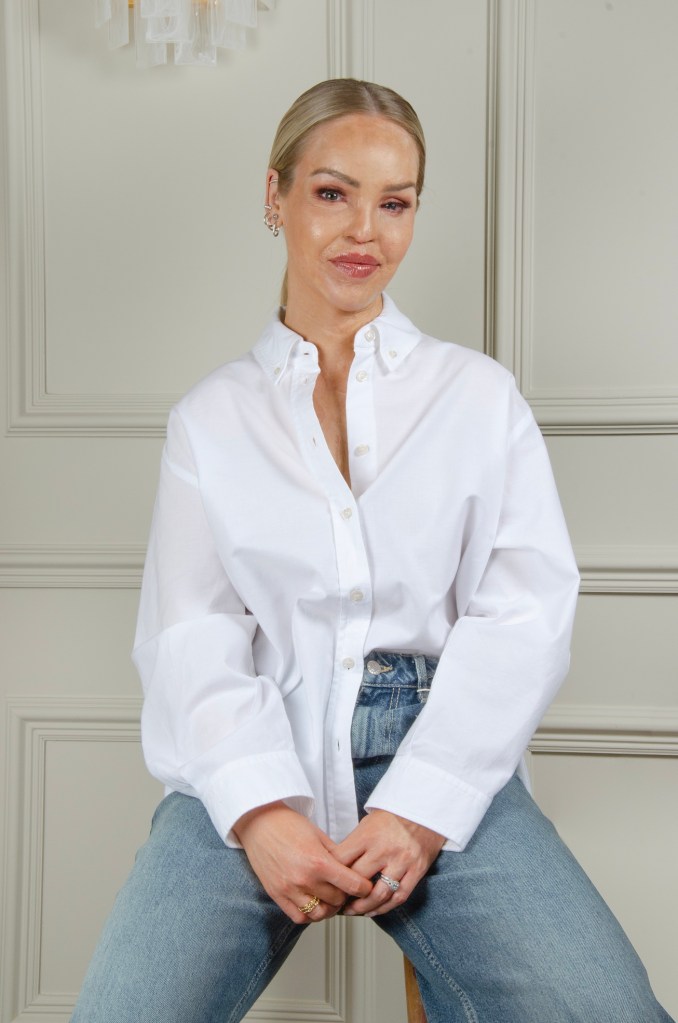
So how did this ‘artificial family’ and spending so much time with mothers in hugely challenging circumstances affect her own parenting?
‘It was really hard, because every day people would say, “I miss my kids. I want to hug my kids. I want to be there for my kids.” And I was away from home for weeks at a time, missing things such as assemblies and bits at school, and I admit, I was feeling that same longing more than I normally would during a work project.
‘But then I also felt this conflict of “Come on, pull yourself together. You’ll be home in two weeks, and then be with your children, and you can parent them and nurture them. These women are going to have to mother their child over a payphone for seven years. Who am I to even feel like I miss my kids; I don’t know the half of it.”
‘I’m not perfect, I’m just a regular mum: sometimes I’m winning, and feel like I’m doing really well, like when I have time to go to sports day and remember the swimming kit. And other times, I drop the ball. My kids go in uniform and it’s non-uniform day, and I make the wrong sandwich. I don’t think anyone gets it right all of the time. You just need to find your tribe and support one another when you’re struggling.
‘I think the programme is an important reminder of how childhood goes in the blink of an eye, and you only get one chance. I’m as guilty as the next person of not being present, and being on my phone and rushing bedtime and needing to get downstairs to fold up the washing. But making this programme made me realise I want to slow down a bit, because there’s only one shot at this.’
Katie Piper’s Jailhouse Mums airs on Wednesdays at 10pm on W, or catch up on UKTV Play. Katie Piper’s Breakfast Show is on every Sunday morning on ITV1
